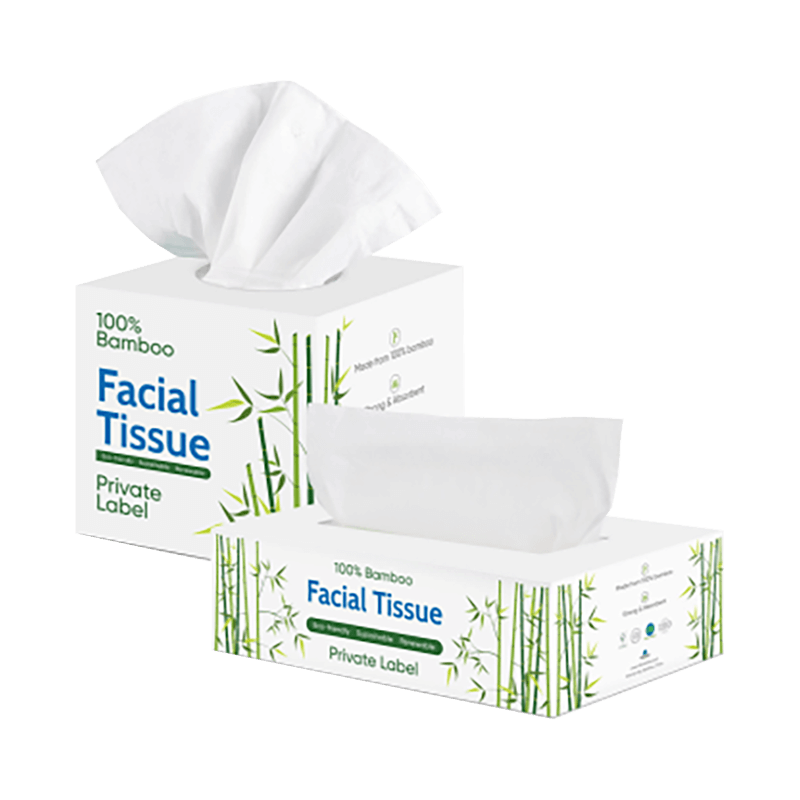Private Label and OEM Growth in Bamboo Facial Tissue
With the awareness of consumers about sustainability and eco-friendly products continues to grow, bamboo facial tissue has emerged as a popular alternative to the traditional wood pulp tissue. The bamboo facial tissue is known for its biodegradability, softness, and sustainable sourcing, aligning well with the values of environmentally conscious buyers. with the ideals of eco-conscious consumers. The growing demand has led to substantial growth of the private label and Original Equipment Manufacturer (OEM) sectors, reshaping the market for bamboo facial tissue products.
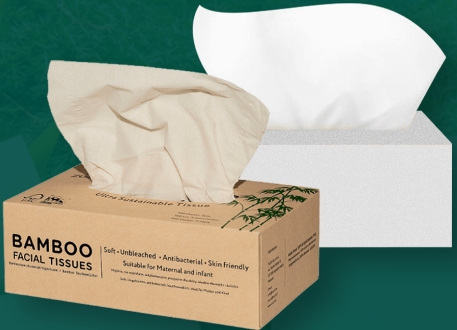
The Growing Popularity of Bamboo Facial Tissue
Environmental Advantages Driving Consumer Interest
One of the main factors behind the rise in popularity of bamboo facial tissue is its environmental value. Bamboo is a renewable resource that is growing more quickly than the traditional trees used for paper making, and often reaches maturity within a couple of years. The rapid growth of bamboo reduces the pressure on forests and promotes sustainable practices in forestry. In addition, bamboo cultivation uses fewer pesticides as well as less water than traditional wood pulp, making it a greener option.
Customers are increasingly seeking products that demonstrate the sustainability values they believe in the bamboo facial tissue meets the bill perfectly. Biodegradability and compostability add to its eco-friendly appearance, as it is able to break down naturally without causing harm to the ecosystem after it is disposed of.
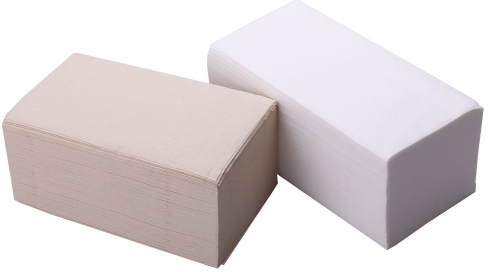
Superior Quality and Comfort
Beyond its environmental credentials, bamboo facial tissue is becoming popular due to its softness and toughness, and hypoallergenic characteristics. The bamboo fiber is naturally soft and sturdy and bamboo facial tissues are soft for the skin, maintaining the durability of usage. The combination of comfort and performance will appeal to people who are looking for premium alternatives to the standard facial tissues.
Furthermore, bamboo facial tissues are usually free of harsh bleaching agents and chemicals and reduces the risk of irritation for skin that is sensitive. This is why they are appealing to families and those who value gentle products for personal care.
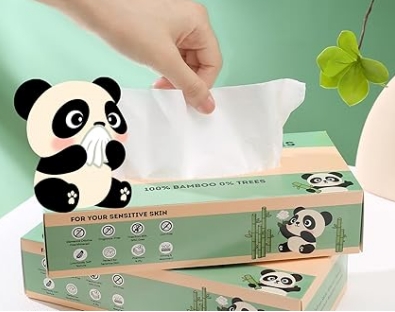
The Growth of Private Label Bamboo Facial Tissue
1. Meeting Consumer Demand for Sustainability
The modern consumer is more informed and conscious of the environment than they have ever been. They expect retailers and brands to provide products that reduce environmental impact. Facial tissue made of bamboo, made from a fast-growing plant is in perfect harmony with these ideals. Recognizing this, several retailers have started selling bamboo tissue that is sold under a private label specifically targeted at eco-conscious customers who are looking for sustainable alternatives however, they also want to be affordable.
In offering bamboo facial tissues on their personal label retailers can establish themselves as advocates for sustainable practices while offering high-quality products at affordable prices. This approach not only draws new customers, but also builds loyalty among customers who make responsible buying decisions.
2. Advantages for Retailers and Manufacturers
Bamboo facial tissue that is private label can provide retailers with a number of advantages. It lets them distinguish their products in a highly competitive market without the cost and complexity of creating the products themselves. By partnering with seasoned OEM manufacturers allows retailers to get access to superior bamboo products that meet the highest standards of safety and quality that are packaged with a custom branding that represents their company’s identity.
For bamboo tissue paper manufacturers, the increase the demand for private labels can open doors for increased production capacity along with long-term contract agreements. This cooperation fosters the development of new technologies and improves efficiency in the production of bamboo tissue and results in improved products as well as more cost-effective pricing that boosts the growth of markets.
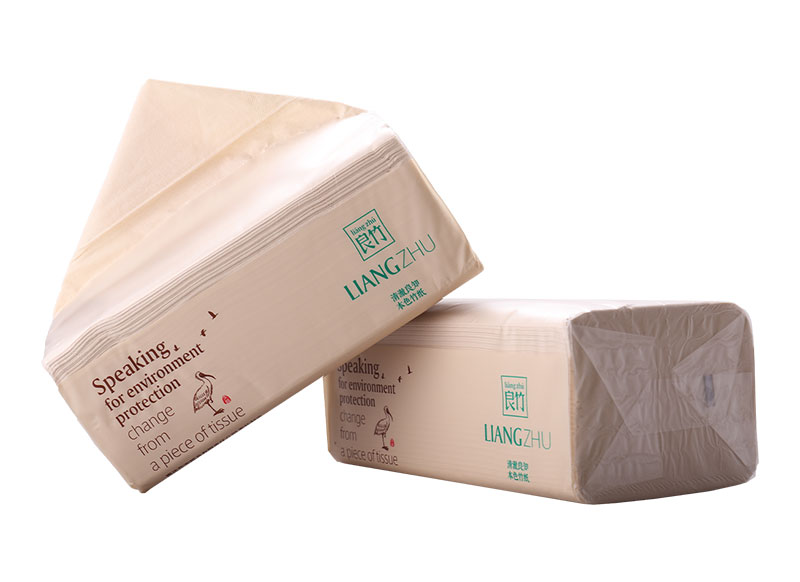
3. Expanding Market Reach and Accessibility
The availability of bamboo facial tissue that is private label has widened the market for environmentally friendly products. Traditionally, environmentally friendly tissues were typically marketed as high-end, exclusive items that had higher prices. However, the availability of private label options make bamboo facial tissues more readily available across a variety of retail channels, such as pharmacies, supermarkets, and even online platforms.
The increased distribution does not just increase sales, but also increases consumer awareness of the benefits of bamboo which encourages more widespread acceptance and generating further demand.
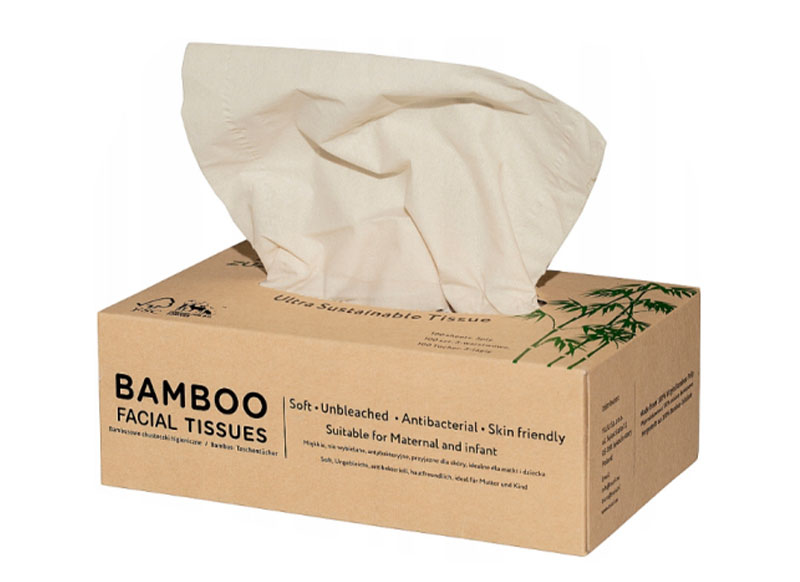
OEM Bamboo Facial Tissue Manufacturers Driving Innovation and Scale
The core of this growth is OEM, whose expertise and innovation capabilities are crucial in meeting market needs while scaling production efficiently.
1. Innovation in Sustainable Manufacturing
OEM bamboo tissue paper manufacturers continually spend money on research and development in order to increase the quality of their products as well as sustainability. They employ advanced pulping technology which preserve the natural toughness and softness of bamboo fibers, while reducing the use of harmful chemicals. Innovations extend to eco-friendly packaging. Many OEMs designing biodegradable, recyclable compostable or biodegradable packaging which are in line with the environmental goals.
Furthermore, OEMs focus on optimizing production processes so that they reduce the use of energy and water and energy consumption, indicating their commitment to reducing the carbon footprint of bamboo products. These practices of sustainable manufacturing are not just appealing to eco conscious consumers, but also assist companies comply with increasingly stringent regulations in the world.

2. Customization and Flexibility for Clients
OEMs provide a variety of choices for customization, which allows retailers and brands to distinguish the bamboo products they sell within market competition. From different tissue thicknesses and ply counts, to distinctive packaging design and personal labeling, OEMs create solutions to fulfill the needs of specific clients. This allows emerging companies and established retailers to offer customized products that appeal to their intended customers.
Additionally, OEM manufacturers often collaborate closely with customers when developing products, offering prototypes and design assistance in order to make sure that the product is in perfect alignment with the brand’s branding and quality expectations.
3. Scaling Production to Meet Demand
As the demand for bamboo facial tissue increases, OEM manufacturers play a crucial part in scaling production effectively. With the latest equipment and efficient supply chains OEMs are able to handle huge quantities without sacrificing quality. Their ability to accelerate production quickly allows companies to take advantage of market trends and deliver orders on time, no matter if for major retail chains or for smaller market segments.
The economies of scale realized by OEMs, also help to cost reductions, which makes Bamboo facial tissues more readily available and affordable for a larger spectrum of consumers. Scalability is the primary factor in the widespread adoption of bamboo products.
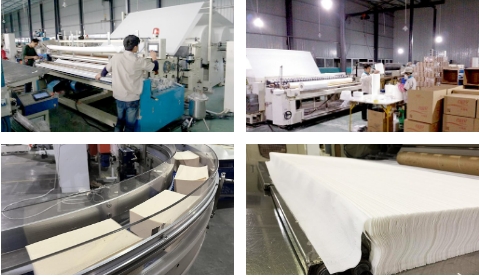
4. Ensuring Quality and Regulatory Compliance
The importance of quality assurance is evident when it comes to personal care products and OEM manufacturers use strict testing and control procedures throughout the manufacturing process. The compliance with international environmental and safety standards like ISO certifications, FSC or PEFC certifications for sourcing add credibility and reliability to the bamboo products they make.
In ensuring consistency in product quality and compliance with regulations, OEMs protect the reputation of their clients and help build the trust of consumers on bamboo facial tissue, which is a safe and sustainable option.
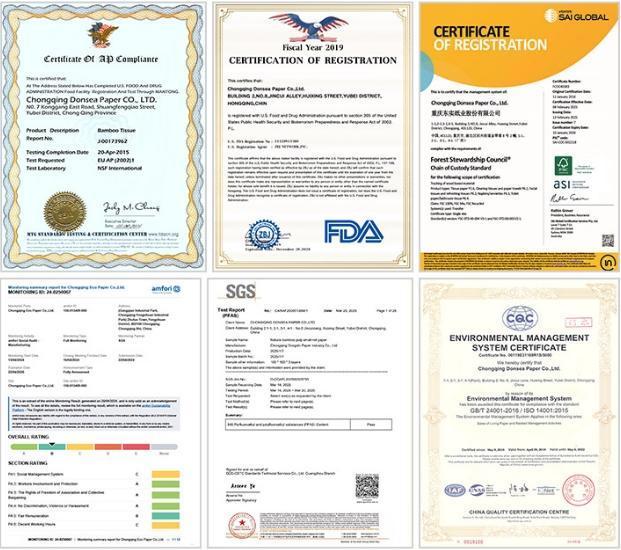
Challenges and Future Outlook of Private Label and OEM Growth in Bamboo Facial Tissue
| Category | Challenges | Future Outlook |
| Supply Chain | There is a limited supply of sustainable bamboo raw materials and price fluctuation | Expanding sustainable bamboo farming and better techniques for sourcing |
| Production Costs | More expensive manufacturing costs when compared to traditional tissue products | Technology advances are reducing production costs |
| Consumer Awareness | There is a need for more education about the benefits of bamboo tissue as compared to conventional options | Environmental awareness is growing and driving the demand for market services |
| Quality Consistency | Keeping the same quality throughout huge production batches | Improved quality control systems for quality control and certifications |
| Regulatory Compliance | Keeping up with the ever-changing regulations for safety and environmental protection | Global standards are being harmonised, simplifies the process of ensuring |
| Market Competition | Global standards are being harmonised, simplifying the process of ensuring | Differentiation through innovation, personalization and branding |
| Distribution Channels | Assuring a wide and reliable distribution of products across the retail as well as online platforms | Expansion of e-commerce as well as private label collaborations |
Summary
Private label and OEM growth in bamboo facial tissue reflects broader trends towards environmentally sustainable consumer products. By leveraging the natural advantages of bamboo and the flexibility of private labeling and OEM partnerships, retailers and manufacturers can meet evolving market demands while contributing to environmental stewardship.

